Fens plan to look at next century of climate change
- Published
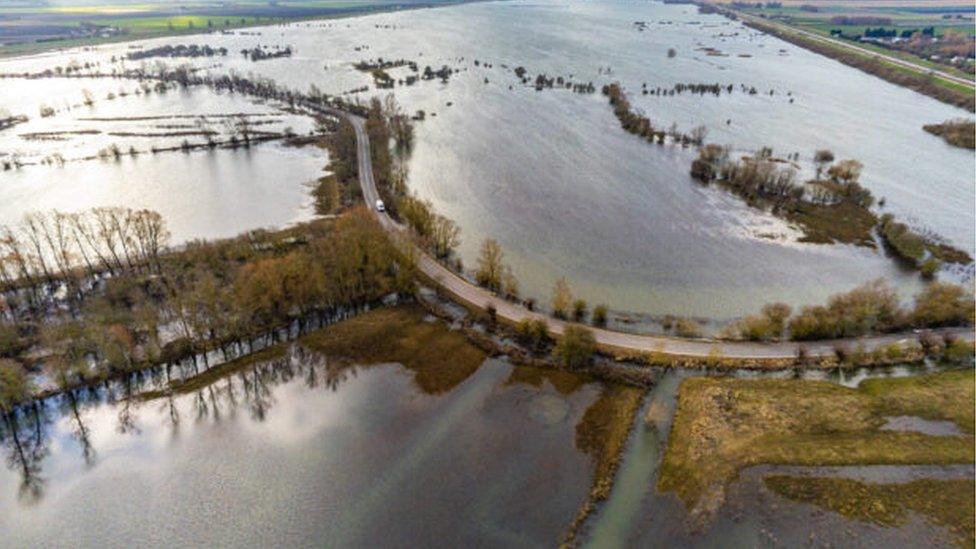
The Welney Washes on the Cambs/Norfolk border are designed to hold large volumes of water to reduce flooding elsewhere in the Fens
Seventy years after a great flood hit the coast of eastern England, a new climate adaptation scheme is launching.
Fens 2100+ is designed to protect the low-lying area that is home to over 50% of England's top agricultural land.
The Environment Agency says it will enable the Fens to "adapt to the challenges of climate change both now and into the future".
Extreme weather and rising sea levels are threatening the region's residents and its capacity to produce food.
The project will scope out what investment is needed to manage "flood and coastal risk" over the next 20 years.
It will then develop adaptation plans "to balance the needs of people, the environment and agriculture for the next 100 years".
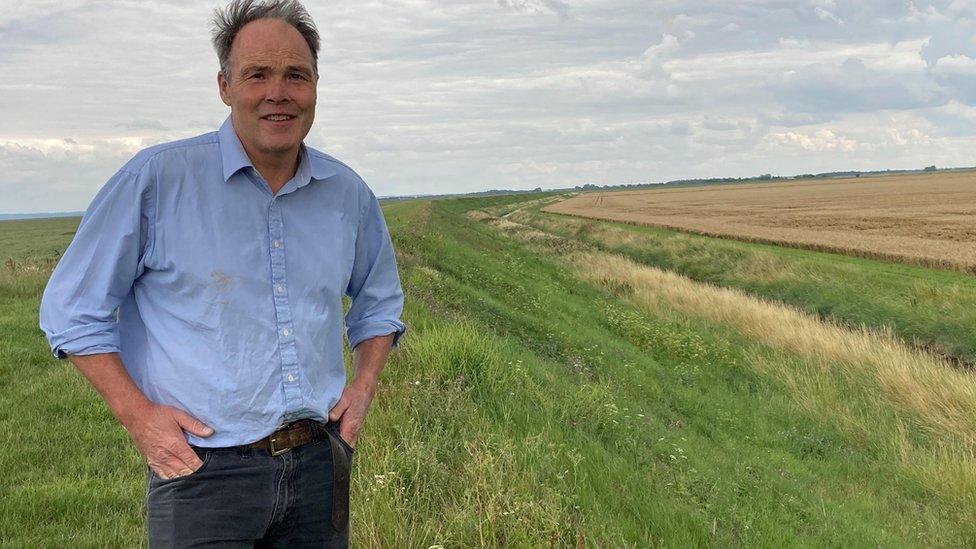
Stafford Proctor farms land across the Fens in Cambridgeshire, Norfolk and Lincolnshire
Farmer Stafford Proctor welcomed the project, saying "this kind of far-reaching planning" is "really good news."
He farms land in Norfolk, Cambridgeshire and Lincolnshire, growing crops such as wheat, sugar beet, peas and oilseed rape.
He has already seen climate change affecting his crops and said it has been "very, very difficult" to make a profit from selling potatoes recently.
"We don't have irrigation, so that's counted against us in these dry years," he said.
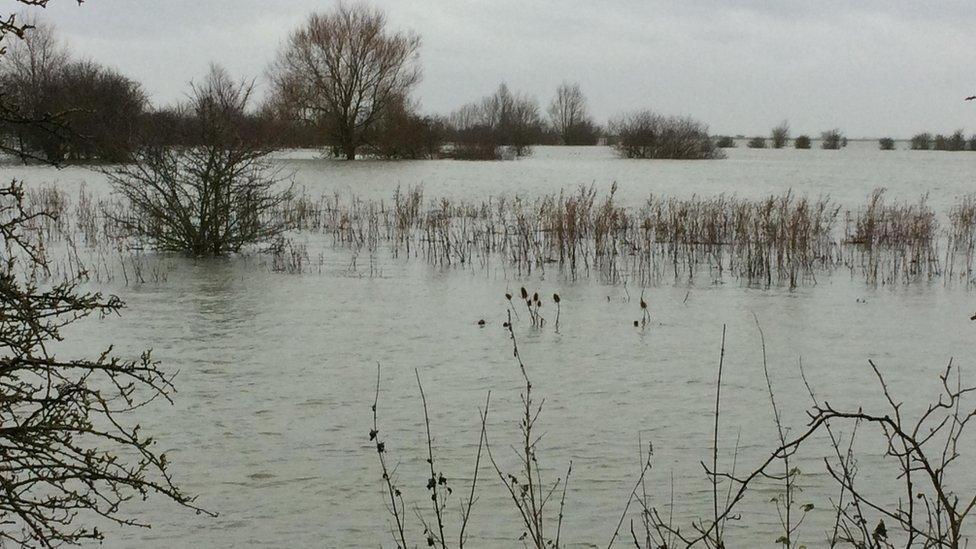
The Fens is susceptible to flooding as it is low-lying
Amy Shaw, flood risk manager at the Environment Agency, said The Fens is "an entirely unnatural landscape" only made habitable thanks to careful management.
She said the focus of Fens 2100+, external was to "develop investment plans" and drum up capital funding for "flood and coastal risk management".
It is thought about £1.6bn in investment is needed to protect the Fens.
Mr Proctor says one area that needs more funding is the flood defence banks.
"We haven't put any new banks up now since 1980," he said, "and at some point in the future, the sea is going to come over our existing banks."
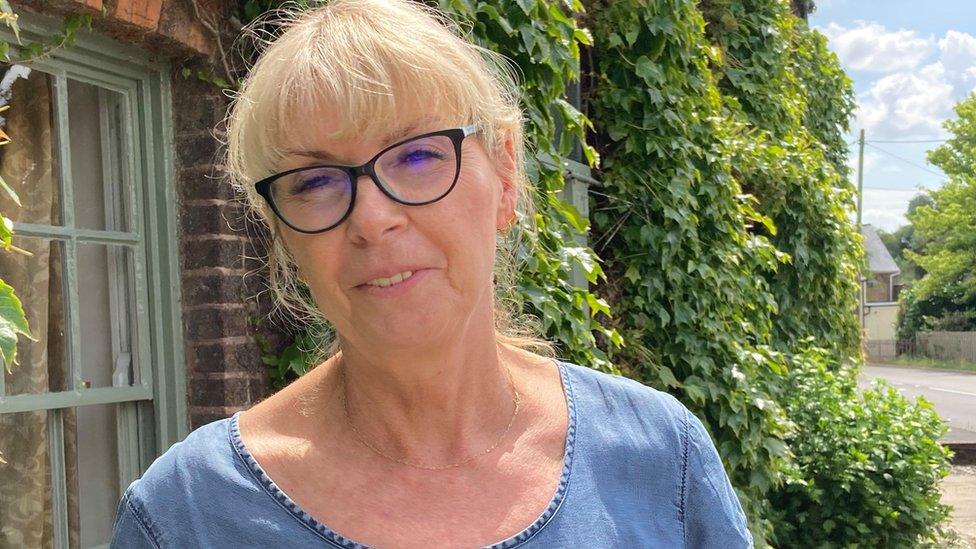
Pub landlady Georgina Birch agrees investment is needed
Georgina Birch is landlady at the Lamb and Flag pub in Welney, Norfolk.
She is sceptical about whether future investment will make a difference to residents.
"A lot of money has been invested by the Environment Agency to protect farmland, which is completely understandable," she said.
"What we haven't seen is anything done for local communities regarding transport links."
She says money was spent last year putting up barriers to protect the village, but questions whether the area needs a complete overhaul.
"Is the answer to keep putting sticking plasters on the banks, or is the answer to reconsider proper management of the actual water ways?" she asked.
Mr Proctor said Fens 2100+ is a great way to "raise awareness" about climate change after having his own "wake up call" during a flood on the River Nene in 2013.
"We all need to be aware of the risks we are under and be doing something to make sure that it is not a problem for the future generations," he said.

Find BBC News: East of England on Facebook, external, Instagram, external and Twitter, external. If you have a story suggestion email eastofenglandnews@bbc.co.uk, external
Related topics
- Published11 July 2021

- Published13 July 2021
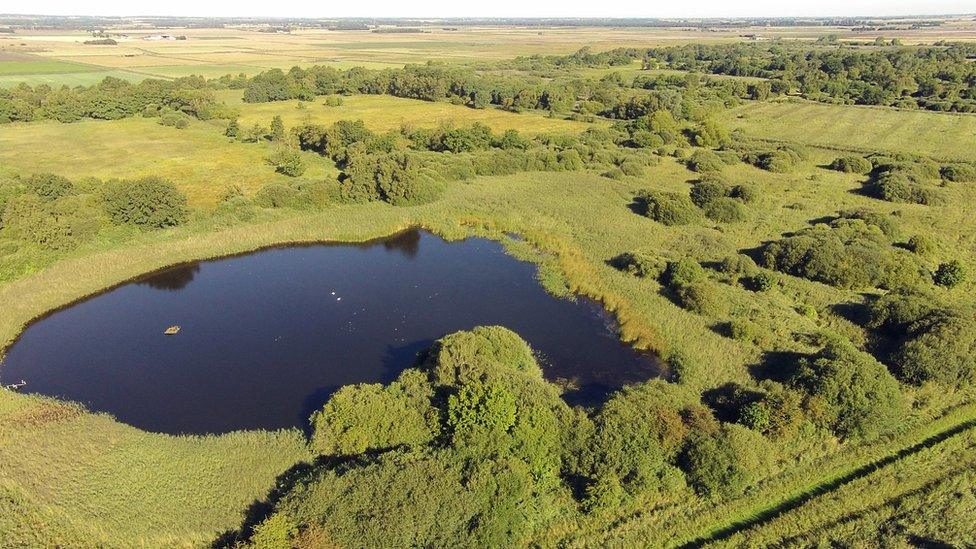
- Published12 March 2021
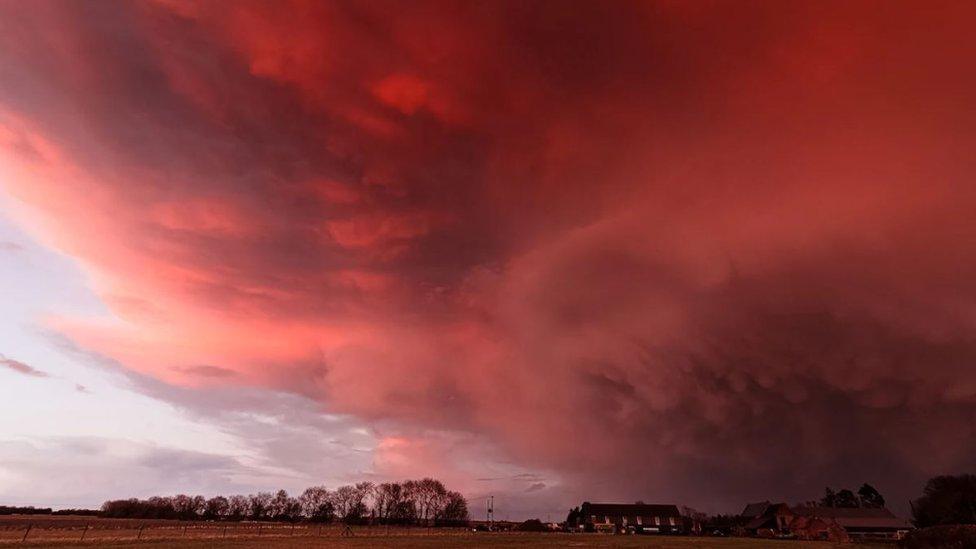
- Published31 January 2023
